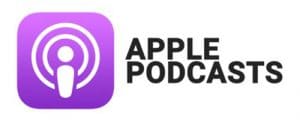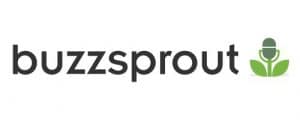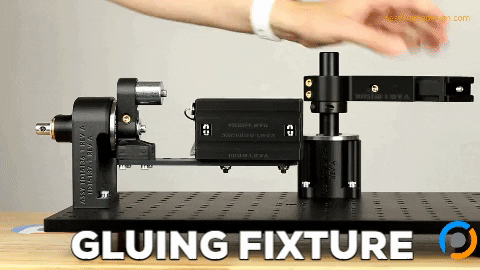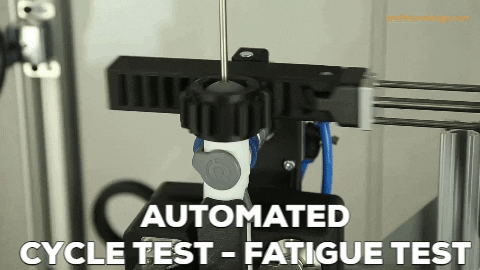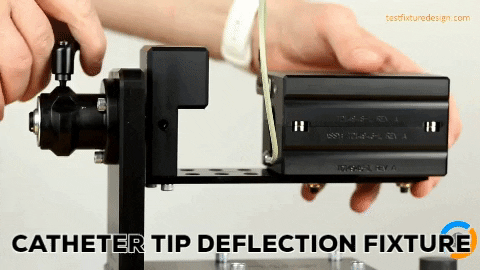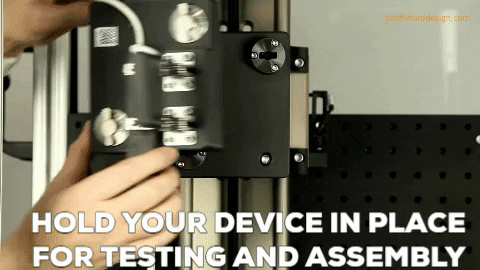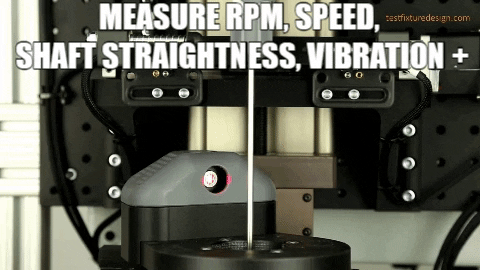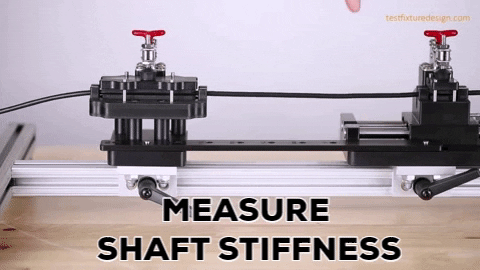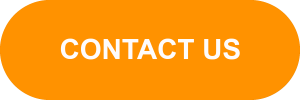S4E36 Wes Schwie| Intellectual Property
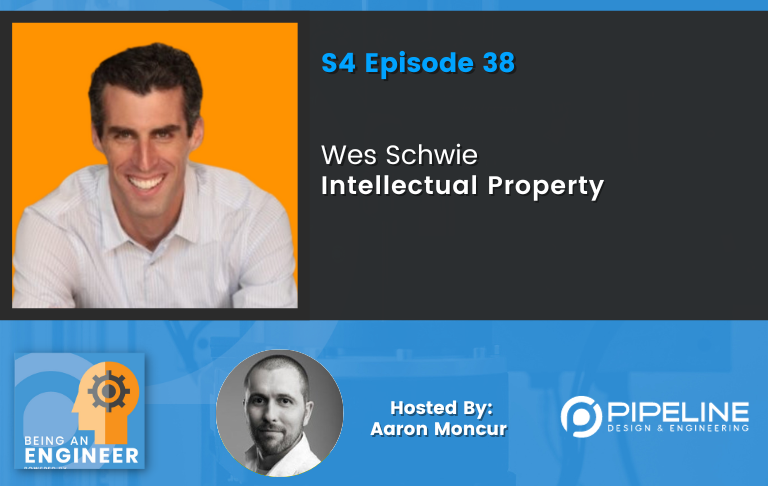
Who is Wes Schwie?
Wes Schwie is a dreamer and innovator who loves solving problems. He uses his skills as a patent attorney, engineer, entrepreneur, and business executive to bring ideas to life.
Wes is the founder and a patent attorney at Gallium Law, a boutique intellectual property law firm. He is also a co-founder and the General Counsel at Innovelis, a company that makes innovative mounts for home electronics. Many of their products can be found in Apple Stores worldwide. Wes is an animal lover and avid workout enthusiast; you can find him on his rowing machine (where he identifies as “The Vegan Rower”), riding a bike, or taking long walks in nature. In his spare time, he enjoys writing comedy sketches and jokes, which he plans to bring to the stage one day.
Being an Engineer Survey link: https://www.surveymonkey.com/r/WHJ9SGD
Survey participants will be entered to win a Being an Engineer t-shirt. Five winners will be chosen and announced in our newsletter Wednesday, October 4th.
EXPAND TO VIEW EPISODE TRANSCRIPTION
SUMMARY KEYWORDS
patent, people, file, provisional patent application, wes, invention, gallium, patent attorney, inventors, patent application, engineering, engineer, provisional application, selling, application, litigation, joke, oftentimes, snl, idea
SPEAKERS
Aaron Moncur, Aaron Robison, Wes Schwie
Aaron Moncur 00:00
We’ve been producing engaging content for the engineering community for over three years. Interviewing industry leaders like Jon Hirschtick, the founder of SolidWorks, our very own engineering manager, Michael Headley, and numerous engineers, product developers and business professionals. But now, we want to hear from the most important people, our listeners, click the survey link in the show notes below to share your advice and help us grow the being an engineer podcast. Plus, by participating, you have a chance to win an exclusive being an engineer t shirt submissions closed Tuesday, October 3, five winners will be chosen and announced in our newsletter on Wednesday, October 4.
Wes Schwie 00:42
People should have faith in their own brilliance and really take the necessary steps to protect their ideas because you just never know what it’s gonna turn into.
Aaron Robison 01:03
Hi, this is Aaron Robison with the being an engineer Podcast. Today we’re being joined by Wes Schwie. Wes is a dreamer and innovator who loves solving problems. He uses his skills as a patent attorney, engineer, entrepreneur, and business executive to bring ideas to life. Wes is the founder and a patent attorney at gallium law, a boutique intellectual property law firm. He’s also the co founder and general counsel at Innovelis, a company that makes innovative mounts for home electronics, many of their products can be found in Apple stores worldwide. Wes is an animal lover, and avid workout enthusiast, you can find him on his rowing machine where he identifies as the vegan rower riding a bike or taking long walks in nature. In his spare time, he enjoys writing comedy sketches and jokes, which he plans to bring to the stage one day. We’re excited to hear when that day is. Wes, welcome to the show.
Wes Schwie 01:56
Hey, Aaron. It’s great to be here. Thanks for having me.
Aaron Robison 01:57
Yeah, glad to have you. So when we have that introduction about union, I really pulled that from LinkedIn. And it’s pretty startling or not really common that people start with more of like, why they do something as opposed to what they do. Simon Sinek talks about a lot about that. He says, Start With Why you began with being a dreamer, and an innovator who loves solving problems. And what you do is listed second, what made you write that write it in that order.
Wes Schwie 02:20
You know, I think it’s really easy to kind of get lost in your occupation identified by your job. And it just really gives people an opportunity to feel like they know you before they’ve really gotten to know you. And so, you know, let’s be honest, when you meet someone, they say they’re a lawyer, it’s hard not to, you know, instinctively develop a preconceived notion in your mind about what a lawyer is, who that person is, as well. So I’d really lead with something more based on my personality. You know, honestly, when people ask me what I do for a living, I usually say I work.
Aaron Robison 02:50
That’s interesting. Yeah, it’s bad enough saying, I’m an engineer, and being a lawyer might even be harder for people to look you square in the eyes sometimes, because there’s so many preconceived notions.
Wes Schwie 02:59
That’s good to hear. Exactly.
Aaron Robison 03:01
So Wes, tell us about your journey from becoming an engineer and then a patent attorney.
Wes Schwie 03:07
Yeah, so it’s interesting, you know, my journey from being to becoming an engineer was really based in my father, my brother, everything he did. You know, as a kid throughout my teenage years, whatever my older brother did, I did the same thing. He played tennis, soccer or basketball, I played tennis, soccer, and basketball, or, you know, I followed him to the same high school, and even that same college. And so when he decided to study engineering, it was just natural for me to do the exact same thing as him. So it wasn’t until I got to college that I started to develop my own identity, you know, really make my own path. And I guess he it’s funny because we both finished an engineering. He studied geo Environmental Engineering, I did mechanical engineering. So I guess that’s where I really started to deviate. But then my path to becoming a patent attorney is a little bit embarrassing, actually, it’s, you know, back in high school when I was like, 16, or 17, I was at my friend Heather’s house one day, and this guy pulls up. And he’s wearing these like, cool sunglasses. And he’s driving this like flashy Porsche 911. And mind you, I was a teenager, I was obsessed with fast cars. And the guy turned out to be my friend’s uncle. So this guy walks in the house. And the first thing I say to the guy isn’t even asking what his name is. I’m like, what do you do for a living? And he said, he was a patent attorney. And so like, from right then in there, My decision was made, I need to go into patent. And mind you, I didn’t actually go to law school until I was 32 years old, who was and it was for much different reasons than than the guy with Porsche, but, but he definitely planted a seed in my mind, and, and I’ve never had a Porsche and but I do have sunglasses, though. So
Aaron Robison 04:39
well, you know, it’s funny you share that because I remember when I was in school, you could go to lunch with people in industry, and I went, I thought about becoming a patent attorney, and I went to lunch with a guy who was a patent attorney, and he showed up in a Porsche 911. And he got valet parking for you know, two spots down there. And I thought maybe this is a pretty good career if you want to go after some money but you So now that you are a patent attorney and sales and co founder and innovator, I mean, as I know, you, it seems like you’re on the right path. Do you feel like you’re really at you’ve made a good choice? And you’re happy with where you are?
Wes Schwie 05:14
Yeah, definitely. I, you know, the reason would you ask, like, What’s your why? That Simon Sinek thing, I, my wife is really rooted in being control and having like, you know, maintaining a substantial level of autonomy of my day to day life. And I think that, you know, being an entrepreneur, it allows me to choose, you know, whom I work with what I work on, you know, when I worked as an engineer for a big corporation, and also law firm, at someone else’s law firm, you know, I was told what to work on whom to work with. And the, you know, the entrepreneurial world really introduced me to this idea of, of being a sovereign entity, you can really choose your own path, and you can choose what you want to do day to day. And so that’s really kind of, you know, if you ask me, What’s my why it’s really just having autonomous, you know, autonomy over my own life.
Aaron Robison 05:59
Yeah. Okay. Well, let’s take that into your law firm. So it’s called gallium law. I know gallium is a soft silvery metal, and it’s gonna it can melt in your hand, what’s the meaning behind gallium in your firm’s name?
Wes Schwie 06:12
You know, so my my good friend, Bill is married to a woman named Lesley summer tell you the background of how I got the name here. But But Leslie is this brilliant legal marketer, she has worked for a number of different law firms. And she knows the legal business really inside now. And so, two years ago, you know, the name of the firm was Srila for many years, and two years ago, I just decided it’s time to change name with farm, let’s let’s, you know, let’s have a different name. It’s not so much rooted my identity. And so I asked my friend Bill, I said, Hey, would you mind mentioning this to your to your wife, Lesley, and see if she has any ideas for a name. And she immediately got back to me like the next day with three different names. And one of them was gallium law. And as soon as I saw it, I knew that was the name that we had. So you know, all these cool things about gallium having, you know, antibacterial properties being liquid metal room temperature, they had no bearing on me choosing the name was purely the optics. And sound of gallium ah, that sold me.
Aaron Robison 07:07
Yeah, that’s cool. It’s always interesting to hear what the story is behind all of those things. Right. Okay. All right. So if someone’s thinking about becoming a patent attorney, what are some indicators that might suggest an engineer, or an engineering student would perform better as a patent attorney than as an engineer?
Wes Schwie 07:26
People often think that creative folks stay in the engineering field and those who like to write go into patent law. And certainly there is, I think there’s some truth to that, you know, if you want to be a writer, there’s a lot more writing patent law. But I think really, if you if you do both, and like both, you can certainly you know, I think either path be suited for you. I think one candidate one thing to to think about is also the indicate, like your you know, what environment you prefer to work in. In engineering, I often found myself working with large groups of people from various disciplines, trying to solve these complex problems. And in patois, there’s a more solitary element of the business where, you know, you definitely do work with inventors, from the beginning, where you’re, you know, you have these adventure interviews, you really dive deep and figure out what the full invention scope is. But then there’s a lot of part, a lot of the work is done alone on your computer, where you’re taking those ideas back. And you’re really, you know, putting them to life in a patent application enabling on paper and, you know, getting ready to file with the United States or the whatever Patent Office, you want to file them. So I personally, like both access aspects of law and engineering. But, you know, I think there are certainly times when it’s nice to just disappear to my office and just kind of be alone and not be around large groups. So I think it’s one thing I’d like to always ask people as well. Think about what you see yourself doing and a couple of years and who you see yourself working with. And I think, you know, Pat log, and you can really work from home, if you want to very easily. Where I think is with engineering, it’s it’s, you know, it’s probably more inclined to being an environment being in the office with folks talking things out and kind of solving problems is a large group.
Aaron Robison 09:03
Yeah, especially or if you have, you know, there’s hardware involved, and you have to be at the same location as a piece of equipment or product or something else. Okay. That’s helpful. I think the idea of thinking about not just what you want to be doing, but who do you want to be working with is a is a big indicator that we probably don’t talk a lot about it in school. Wes, as I’ve known you, you’ve been quite generous with your time to solo inventors, what makes you so willing to offer free consults?
Wes Schwie 09:30
Well, spent law is very stringent regarding timelines, you know, when you can and well, you can always file a patent application if you want. But there is very strict timelines regarding you know, if you fail too late, and so, you know, as you know, Aaron, you can’t rewind the clock once that once the time passes, you can’t go back in time and say, I’m gonna file that patent application. So it’s, it’s super important for everyone to, you know, make sure they’re aware of these timelines and adhere to them properly. So It’s you know, people often think that patent applications are super expensive. And you know, there’s all these barriers to entry to getting your idea protected, but, but really, it’s not that difficult. And I should say that it’s, you can make it as difficult as you want to be. But it’s not that expensive. And so I’d rather talk to people upfront, educate them, let them know, here’s what you can and can’t do. And here’s the timeline to consider, and I’ll let them decide accordingly. And, you know, I’m happy to talk to anyone anytime about their ideas, and just educate them. Because it’s just, again, it’s very important to make sure you, you know the timelines, because you can’t rewind the clock.
Aaron Robison 10:36
Ya know, I’ve seen that about you. And it’s really stood out that you just seem to have a passion about just making sure that people are protected and kind of don’t make mistakes. And even if that’s a little bit of your time, you’re just have been really generous with it. You know, there’s a lot of misunderstandings about intellectual property. And we don’t want to turn this into, you know, law school. So what’s one thing? If you could really solidify something, it could be more than one thing in people’s minds about intellectual property? What would you really like them to know? And understand that probably a lot of people don’t understand.
Wes Schwie 11:06
So I think one thing that people, you know, when I talked to a lot of prospective clients or inventors, there’s often as general fear that, you know, oh, if you talk to me, are you gonna send me an invoice? And it’s like, no, no, I’m happy to give you this, you know, again, a free consultation. So I think the one thing is, don’t be afraid to reach out and talk to an attorney and understand your rights. And I think the really important thing is, it’s, it’s so crucial to file a provisional patent application as early as possible. I think that’s the one thing that everyone needs to understand is that, you know, and you could do this for cheap, I mean, most inventors qualify as micro entities. And this is based on income and the previous number of patent applications you’ve filed. But the the filing fees for a provisional patent application are $60. So really, I mean, a person could, in theory, get a provisional patent application on file for $60, it’s very cheap. And that’s the kind of thing that I’m willing to talk to people about is like, hey, just kind of educate them. And here’s what you should include an additional application. You know, just make sure they have kind of those bullet points covered. And you know, of course, will always do the work for people as well. So I think the one thing that I want people to understand is, don’t be afraid to talk to an attorney. And then also to file a provisional application, just get something on file, as soon as we explain
Aaron Robison 12:25
for the audience, what, what filing a provisional patent application does for them why it’s so important. And really, it’s pretty inexpensive, right? But why does it matter so much?
Wes Schwie 12:34
Yeah, it’s a great question. So the provisional patent application establishes your date and time with the patent office as to basically say, here’s the day that my invention was, you know, basically filed with his office. And so it’s called, we call it a priority date. And so establishing that priority date as early as possible is important because it establishes first of all, a 12 month deadline. And so once you file that provisional application, it really gives you the it’s think of it as an insurance policy, you file this application. And it gives you that 12 months to go out and talk to customers, talk to investors, you know, strategic business partners, make the connections you want and feel free to, you know, really disclose your idea, you don’t want to go through and like, show people everything, but you can feel confident that you can discuss your idea openly, you know, knowing that you’ve got this provisional application on file that secures your invention with that respective Patent Office. And so so once you file that provisional application, it again establishes a 12 month deadline. So basically, you have 12 months from that day to file what’s called a non provisional patent application. And that’s the one where it’s like the the real serious application, it’s more expensive for sure that a provisional, but that’s the application that goes into queue with a patent examiner at the patent office. And it basically determines whether or not you get a patent. And so, you know, again, I think just getting a provisional application on file, even if you disclose your idea, kind of roughly, it’s better than nothing at all we’ve got, we have plenty of clients that have come to us, you know, years later, after they’ve already released an invention public and sold it for a couple years. And they’re like, Well, how can we now get patent protection? And oftentimes, it’s difficult, you can’t do it, you’re just kind of stuck at that point. So hopefully, that answers people’s questions. And yeah, it’s, it’s not as daunting of processes people really think it is.
Aaron Robison 14:25
Yeah, I mean, maybe to put it into lay terms, too, right. So a provisional patent application. When you file that, that’s when you can say patent pending, and that’s probably what people see is patent pending. So a patent has not been granted, but at least it’s saying to the world, hey, we’re starting this, we’re thinking about this. And then the non provisional patent application, that’s if that’s granted, that’s when really people say I have a patent, is that correct?
Wes Schwie 14:48
Exactly. Correct. Yep, exactly.
Aaron Robison 14:51
Okay. Yeah. So that priority date, especially when we when the United States switch to first to file it just kind of, I guess made things more clean and but also that not everybody knows the importance of the provisional patent application? Well, I’ve been through it a few times, and you’ve helped us and I’ve done it on my own. And it really wasn’t as bad as we thought. And yeah, that year mark, and also feel a little more comfortable going out to the world and showing what you have to get some more feedback on it. We have found to be really helpful. What a little different, but it’s still in regards to intellectual property. What can people do to protect themselves against counterfeit products? If they’ve, if they’re the producer, or the developer of of, you know, the real products? There’s a lot of counterfeits out there. What can they do for that?
Wes Schwie 15:31
Yeah, that’s a great segue from the last question. So I think, you know, again, two things, really, it’s filed provisional application, get something on file. But I think secrecy is also an important part of the game too. Because, you know, you don’t want to be the worst thing you can do is not file a an applicate, a patent application, and then go out and talk to everyone and their brother about it, were you telling your neighbors about it, you’ve got a press release, you’ve put out there, you’ve got things on social media, Secrecy is really important. It’s, you know, we, in the patent world, we like to think of patent applications, it’s like submarines, you know, you just these things are filed, no one knows they’re there, you keep your invention secret, and then all sudden, it just pops up, you know, and that’s often the time when people commercialize their idea they want to, they put it out there for a big product launch. And so I think the thing you can really do is, we’ve got a lot of a lot of clients that sell on Amazon. And you know, as soon as you publicly release your idea, you’re really opening yourself up to, you know, having copycats within three to six months, often. And so it’s important to keep that quiet. You know, again, if you once you file a patent application, you can discuss it openly with people. But we like to tell people to discuss it with trusted colleagues not to go out there and just blast it out there for people to see. Because then again, you’re opening yourself up to caulk to counterfeit products. So again, just I guess the basics are, file a provisional patent application, keep things secret from people you don’t trust, until you have that big product launch or service launch, or whatever it is when you have that big splash to the marketplace.
Aaron Robison 17:06
So if you’ve done it correctly, and you follow that process, and then you know, you’re selling your product that has a non provisional patent application even granted, and then there still are counterfeits what what can you do?
Wes Schwie 17:20
Yeah, so what you can do is you can so once your patent application publishes, that establishes what are called provisional rights. And so you can essentially even though you don’t have a patent granted, so once you file a provisional patent application, then you 12 months go by, and you file that non provisional patent application, six months after you file why it’s actually 18 months after you file the provisional application, your patent application is published for the world see, and that’s the time when you can put, you know, counterfeits or infringers on notice to basically say, Hey, I’ve got this published patent application that has these claims of my invention. And it appears that you are infringing these claims. And so basically, what it’s saying is, if any one of these claims that you’re infringing, then is patented, then you are you you’re liable for triple damages. So it’s a very daunting, if you receive, you know, provisional rights notice from a patent owner, it’s often a very troubling thing to receive, because you’re kind of at the point where, hey, do we keep selling this product at risk and potentially owing triple damages? Or do we just bought off and you know, send, they’re not going to? So it’s a very evenly don’t have a patent, you still can have a lot of power? Once your your patent application does publish.
Aaron Robison 18:34
When you help people do that, what do you see, as far as maybe the the split between how often people actually do CCE versus it goes to litigation?
Wes Schwie 18:44
You know, I think litigation is kind of like the last stand. I don’t think, you know, oftentimes, and we’ve done we’ve certainly been involved in litigation with our clients before, but I think for the from the number of, let’s call them legal notices that have a cease and desist element to it. You know, it’s a small percentage of those that actually go to litigation. And so, you know, it’s it’s legal notices with cease and desist elements to them are often very persuasive. Companies often just will close up shop, they apologize, they go away. And so I think, you know, thinking that litigation is kind of the only the only option you have to enforce your patent really is not the case, because you can just by sending a letter, oftentimes, that persuades people to kind of close the doors and move on. Yeah, I guess
Aaron Robison 19:27
that is encouraging to hear that. Just being active. And, you know, you know, just identifying that, hey, we don’t want to litigate, but we recognize this is happening. It’s good to hear that you are having some success. I think I find that encouraging. Yeah,
Wes Schwie 19:43
and there’s a lot of a lot of these online forums, silicon, Amazon Alibaba, etc. They’ve got very distinguished and established IP forums where you can submit complaints IP infringement and so it’s kind of like a pre I don’t want to call it pre litigation, so they’re like a nominee. You shouldn’t foreign go through that. You know, really it’s it’s when the the infringer receives that notice of this complaint in Amazon, oftentimes, the product is just take offline that and they’ve even got to work with you to figure out that keep selling it. Yeah. So there are a lot of non litigation alternatives out there.
Aaron Robison 20:16
That’s good to know. And probably a lot of people don’t know about the spectrum of options that are available. So I hear a lot of different opinions and insights, I’ll call them as to what people think, you know, once they have a patent, what it really offers them and what it doesn’t offer them. And I don’t know if I can use the right term, even protection or rights. But if somebody is granted a non provisional patent application, what is it that that really affords them as the inventor or the assignee?
Wes Schwie 20:45
Well, first of all, you’re absolutely right, it definitely is rights and protection that’s afforded to them. So well, really, the legal definition of what a patent gives the owner is the right to exclude others from making using you to offering for sale selling or importing that idea into that country, wherever the patent application on the patent is issued. So you’re probably thinking like, Man, oh, man, what on earth is that me and like, you know, you’ve got the right to exclude. So but you don’t have the right to practice your idea, which is kind of confusing to people. So the so the, the really important thing to know here is that, again, a patent does not give you the right to make or use your invention. But it gives you the right to stop others from making your using your invention. And so hopefully, I didn’t confuse you more, but I’ll give you kind of a patent one on one lesson. So here, hopefully, this doesn’t confuse people too much. But so let’s say a patent claims a device comprising a, b, and c. So basically, when the word comprising means that that patent can select the covers a, b, and c, and anything else, in addition to a, b, and c, so let’s say someone has a device that they’re selling, that’s got A, B, C, D, E, and F, well, you’re infringing that color patent that has the claim for A, B, C, but you could potentially get a patent for your device that has a, b, c, d, e, and f. But again, you can’t practice it, because the previous claim for A, B and C and so in that situation, you’d probably want to go to the owner of the ABC patterns, try to get a license, maybe see when the patent expires, it might expire in a year or two, and you can just kind of wait. But the important thing to note here is again, it doesn’t give you the right to make or use your invention. It gives you the right to exclude others from making your using your invention.
Aaron Robison 22:33
It’s an interesting model that people are granted rights to exclude others, but the right to produce or sell etcetera, that’s really through, is it really to the legal mechanism, and contracts, etc?
Wes Schwie 22:47
Yeah, exactly. So, again, so when you if by getting a license, you can, you know, you’re basically getting the rights to use that previous the ABC patent. And by you know, by having your patent for ABCDF, you effectively have control, and you can sell and make and use your own invention, because you have the rights to the ABC, which is again through a contract or license. And then you’ve got your own patent for ABCDE F so and you can then take I mean, if you, you could then thereby license your A, B, C, D, E, F patent to someone else than to if you want to go out and draft a contract, license it monetize it, make passive income. So a lot of it is done through having contracts with various entities that want access to your intellectual property.
Aaron Robison 23:30
Yeah, that’s really helpful. And hopefully that helps the listeners understand a little bit more maybe then where they were, they should certainly reach out to others. If someone does want to find, you know, everyone kind of knows someone that’s a patent attorney or know someone that knows someone, what are some of the things that you recommend people screen for to make sure that their patent attorney is really going to be a good fit for them? Or, you know, a good patent attorney?
Wes Schwie 23:56
Well, I like to ask, you know, what kind of what’s their experience? And I’ve? Well, first of all, I think cost is one issue, or one thing I like to ask about it that also just, you know, make sure you understand what their background is, have they actually do they have patents themselves? Have they enforced patents? Have they had their patents been through a litigation they’ve been tested by other parties. And so, you know, oftentimes, we’ve had plenty of clients that come to us, and they’ve worked with a previous a different attorney, who drafted an application for really cheap, and then it comes to us and we’re, you know, we got to prosecute that are, you know, work with the patent examiner during the examination process. And there’s so many issues you encounter, that it’s oftentimes a lot more expensive on the back end to fix these things than it is in front end. And sometimes it’s just fatal to you just can’t fix some of these issues. And so, I think some of these things that, you know, inventors might be enamored by as someone that has like a cheap patent process where they, they can do a patent for 1000 bucks or you know, whatever it might be. And those are things where I think when I hear that kind of stuff and is all about cost. It’s immediate red flags for me. And so I think at that point, you want to really ask that practitioner. Okay. Well, tell me about your experience, you know, have you had patents that have been tested in, you know, ex parte re exam or inner parties review or in in various, you know, litigation forums? What’s been have your patents been tested and have they withstood? And so I think that’s, you know, you really want to make sure you know, the history of your, your patent lawyer you might work with and not focus on things like costs, but really understand their experience.
Aaron Robison 25:31
That’s helpful. Yeah, pay me now pay me later type of thing, or you might not even be able to fix it later. So that being said, what are some of the maybe I’ll say the range of costs that people should you generally expect for a provisional patent application in a non provisional patent application?
Wes Schwie 25:48
Yeah, great question. So we, you know, so I’ll speak in our experience, what we charge clients. And so we really have an open model with clients where, you know, we again, I don’t want to see people not get a patent based on cost, I’d rather have you at least come to me talk to me, I can coach you through the process. And we can kind of figure out, Okay, is there some budget we can work with. And we’ve done so to give you kind of a range of, you know, patent fees you might encounter with us. And this is, I think, very typical industry, too. But typically for, let’s say, for a non provisional patent application, you know, we often charge, we cap our fees at $9,000 for most applications. And so they typically, most non provisional patent applications are in the range of like, seven to $9,000. And some people might think, Well, hey, I don’t have $9,000, you know, I can’t get the thing patented. We do work with clients. And we’ve worked with clients for much smaller budgets, where it’s like, literally a few 1000 bucks. So the client comes to us and says, Hey, look, can you help me out here, can we, you know, get an application on file for a couple 1000 bucks, we can definitely help you because I’m not going to turn away someone that has a legitimate need for intellectual property and wants to protect their idea, and have money be the issue. So But that said, we’ve also done, you know, a larger scale on the boss had applications, which costs literally 10s of 1000s of dollars, where it’s, you’re, you’re trying to protect a lot of different features of complicated systems. So I guess at the end of the day, you know, really, the range is very, very open, but I think, you know, for a nonprovisional application, but seven to $9,000.07 to $9,000 is a good range. And then provisionals are cheaper than bad because you’re just not doing as much and so hopefully, that gives idea, our listeners idea of what to expect the pad process
Aaron Robison 27:35
that’s really helpful, at least to give some people some ideas and you know, that’s not zero expense. But for a, you know, a business expense, what it hopefully gets you, that’s good, and hopefully makes it a little less daunting for some people out there listening. So before we change gears out of intellectual property, and more of the sort of the personal life, anything else you’d like to share for the listeners around intellectual property?
Wes Schwie 27:59
You know, I think one thing, you know, people often I often tell people about as you just never know, what your invention might turn into. And so I think it’s important to again, just talk to someone first before you make the decide what to do. But here’s kind of a here’s a story I can give you. It’s a real boneheaded story about my own experience. It’s a real doozy. But so, before I went to law school, I had this idea and and my idea was for this was when smartphones first came out. And so it was for a smartphone case with a credit card slot in the back. And so I thought, Oh, this is a cool idea. I mean, this is a, I’d love to have my my wallet, which was basically a few credit cards and a few dollar bills, you know, kind of merge into my phone. So it’s all in one. And so I even began working on the provisional patent application, but I never filed it. And so when I was working with NFLs, you know, years ago, I ended up going to see us, which is the Consumer Electronics Show in Las Vegas. And I was there and this is over a year after I’d draft its application, kind of let it just, you know, didn’t do anything with it. But I saw that this company had smartphone cases with credit cards in the back. And I was just like, it’s like that hand slap on the forehead. You know, when you’re like, man, like, what did I do? And so I think it’s just, you know, the, the, the notion here is that people should have faith in their own brilliance, and really take the necessary steps to protect their ideas, because you just never know what it’s gonna turn into.
Aaron Robison 29:24
Yeah, well, I wouldn’t experience there. And especially the idea that you even started drafting I think most people will say, Oh, I thought about it, but didn’t get so far as even drafting it at this story. Well, at least you could laugh about it and tell the story now. So let’s get away from intellectual property for a bit and more on the personal side. That’s what really makes you up and that’s what you can lead with. What What is it Wes that brings you joy, or what is some of the things that bring you joy?
Wes Schwie 29:51
You know, I think smiling and laughter really bring me joy. And so seeing or hearing people laughing around me laughing myself brings me joy I’m hearing something just kind of silly off the wall. You know, I just love to laugh at bad jokes. And so can I can actually tell you a joke. Oh, please. Yeah. Okay, so it’s funny coming from a vegan, I’m gonna tell a hunting joke. So there’s three statisticians go duck hunting. So they all head down to the lake, and they get set up. And just then they see a duck take off in the leg and fly away. And so the first statistician jumps up and shoots boom, but she misses right by three meters. The second set of session jumps up and shoots, boom, they miss left by three meters, and the third set, so she jumps up and he shouts Yes, we got him. Some joy,
Aaron Robison 30:43
that’s perfect. Yeah. And those things that not everybody would get, but it’s tailored to the audience. And he’ll pretty good audience. I’ll try that one at home tonight and see you which one of my kids gets that one. It will be a test.
Wes Schwie 30:56
Excellent. Well, I look forward to hearing back. Yeah. Did you come up with that one? No, no, actually, my my fiance’s cousin told me that joke, and I was just, you know, I feel like whenever I tell a joke, sometimes I butcher it, because I just get too excited for the punchline. Like, this is one joke that just stuck with me. And I love this joke.
Aaron Robison 31:14
So are we good? Thanks for sharing. So you say that you enjoy writing comedy sketches in jokes? Don’t make any big reveals. But what are the types of comedy sketches and jokes you’d like to write? I mean, is it like the one you just told us or a little different flavor or what?
Wes Schwie 31:29
So I like to write I really like SNL, you know, Saturday Night Live is I’ve been a big fan of that show for a long, long time. And so, you know, I find myself watching the show. And, you know, this last year was kind of it wasn’t as good as previous years. And so I felt I found myself critiquing it, really, it’s a little bit too much depth. And so, but a lot of my sketches, and a lot of my jokes are more sketches, where it’s like, it’s setting up a sketch for an SNL typecast where it’s, it would be performed by, you know, a couple actors, that’d be a set, a background, whatever. So a lot of my, a lot of my jokes are more just like these ridiculous sketches, I think would work well on SNL.
Aaron Robison 32:08
Well, hey, we’re excited to see some of those come live sometime through whatever means you do it. So you have to let us know.
Wes Schwie 32:15
Absolutely.
Aaron Robison 32:17
Maybe not on the joyful side, but how about on productivity? Do you have any routines or habits that really help you stay productive, or I’ll even say healthy as well?
Wes Schwie 32:26
Absolutely. So a yoga and exercise are the two things that I really have to do every day. I do some form of exercise, I recently just bought a total. And I’ve been doing that like every other day. I was a rower in college. And so now I don’t roll on the water anymore. But I’ve got a rowing machine in my basement the concept to rower that I use, and so they’ve got concept to post these workout of the days that so you just log in, they got a workout posted, you just do the workout. So you know, I often start my day with usually start my day with yoga, and then I try to find time, at some point in the day, they kind of disappear for, you know, half hour hour and get on the treadmill or do rowing or whatever. And then just walking to trying to make you know, incorporate walking into whatever, walk into the coffee shop or walk into a local restaurant or the library, you know, just make sure I’m getting plenty of exercise that’s just really kind of makes me feel productive. And it’s just a routine that I have to stay in to keep those those endorphins moving.
Aaron Robison 33:24
Well, I don’t know if others can pick up on it. But I feel like I can almost hear the goodness in that in the the tone of your voice where you know, you’re sharp, on when it comes to work. But at the same time, you know, you like to laugh and have fun. And you’re just don’t seem to be insanely stressed out. I’m sure that you know, being in this company companies and what you do is difficult, but it sounds like what you’re doing is working from from what we can tell on audio.
Wes Schwie 33:46
I appreciate that. I’m glad it comes through because I I think definitely yoga is something that really kind of calms me down. And like if you have a stressful day at work, it’s like if you just disappear and do some yoga, it really calms you and just kind of recenter you so I definitely have to do that. Because being a lawyer can be very stressful. But you got to find outlets to relieve the stress.
Aaron Robison 34:05
Yeah, that’s good for you. I am a rock climber. And I claim that it typically indoors at a gym. And it’s often the case that they have yoga as well. And I’ve always wanted to do more of it. I’ve only done a little bit of it. And it’s just one of those things of hey, let’s prioritize and Brandon as well. So we’ll have to give that a try. Well, Wes, that’s pretty much it. We really appreciate your time. If folks would like to get in touch with you. How would you like them to reach out to you?
Wes Schwie 34:30
Yeah, I appreciate that. So the two ways. Typically email is best for me. I can give my email address here I’ll and I’ll spell it too after Oh, so it’s Wes@galliumlaw.com So it’s wes@gallium law.com or through our website and it’s just www.galliumlaw.com So I think those are the best ways I don’t I’m not really a I’m not on social media. I’ve got LinkedIn, but I don’t check a whole lot. So I think emails are the best way to go.
Aaron Robison 35:04
But maybe you could have listed that too as one of the ways to stay healthy. I don’t know. Personal personal opinion. Yeah, for sure. Well, thank you for your time. Good to have you on the show.
Wes Schwie 35:12
Hey, thanks later and really appreciate it. Have a great day.
Aaron Moncur 35:16
I’m Aaron Moncur, founder of pipeline design and engineering. If you liked what you heard today, please share the episode. To learn how your team can leverage our team’s expertise developing turnkey equipment, custom fixtures and automated machines and with product design, visit us at Teampipeline.us. Thanks for listening.
About Being An Engineer
The Being An Engineer podcast is a repository for industry knowledge and a tool through which engineers learn about and connect with relevant companies, technologies, people resources, and opportunities. We feature successful mechanical engineers and interview engineers who are passionate about their work and who made a great impact on the engineering community.
The Being An Engineer podcast is brought to you by Pipeline Design & Engineering. Pipeline partners with medical & other device engineering teams who need turnkey equipment such as cycle test machines, custom test fixtures, automation equipment, assembly jigs, inspection stations and more. You can find us on the web at www.teampipeline.us

